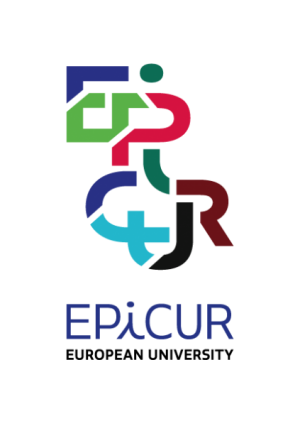Zespół badawczy EPICUR zaprasza do udziału w drugim EPICamp. Tematem drugiego EPICampu jest "Zrównoważony rozwój, wykorzystanie materiałów i sprawiedliwość klimatyczna" Warsztaty organizowane w ramach Projektu EPICUR Research, skierowane są zwłaszcza do grona naukowców rozpoczynających karierę naukowo-badawczą. Gospodarzem będzie Uniwersytet Przyrodniczy we Wiedniu (BOKU). Wydarzenie odbędzie się online w dniach 2-3 grudnia 2021 r.
Zarejestruj się!
Zobacz program wydarzeń
Wydarzenie odbędzie się w języku angielskim. Szczegóły poniżej:
In order to tackle the climate crisis and to enable a sustainability transformation, we need to recognize planetary boundaries and adapt our demand accordingly while considering intra- and intergenerational justice. A sustainability transition is required, away from fossil fuel use towards a circular bioeconomy, where limited resources such as land and raw materials are used carefully and in a way that intra- and intergenerational justice at multiple social and spatial scales is assured. The resulting societies, and their production and consumption patterns, are envisioned to rest on renewable resources (biomass, wind, solar, hydro, etc.) and on non-renewables (like metals or sand) that are used only in a circular manner and within planetary boundaries. But this transition entails changed resource requirements potentially resulting in new sustainability concerns regarding the expected additional pressure on land ecosystems (for biomass production as well as surface area for conservation or infrastructure etc.) which are already in competition with provisioning for agricultural, forestry, infrastructural, and settlement needs. Questions arise not only about how such a transition can be achieved, but also which justice implications are entailed to different societal groups.
Traditionally, large scale transformation scenario modelling has paid little attention to equity and justice questions at the national and, in particular, the sub-national scale. Here, strong commitments to rapidly curb greenhouse gas emissions by transitioning to a decarbonized economy meet with local efforts to address the impacts of climate change. Consequently, climate action needs to be tackled in accordance with resource use (energy, materials, land) and socio-economic drivers accounting for regionally and internationally specific justice concerns.
List of keywords and sub-themes:
- Social metabolism as key to understand the material and energy underpinnings of sustainability
- Land-use changes within planetary boundaries that support a bioeconomy
- Climate change and climate justice: inter- and intragenerational perspectives
- Material wealth, services, sufficiency, and equity
- Ecosystem impact of human activities incl. climate change
- Energy and sustainability transitions
- Trade and teleconnections in the course of sustainability transformations
- Sustainable agriculture and forestry, incl. agroforestry
- Afforestation and Reforestation of marginal lands
- The role of agriculture and forestry combating climate change.
For more information, please visit the EPICUR website or click here.
If you have any questions, please contact: epicur-research@mail.uni-freiburg.de
